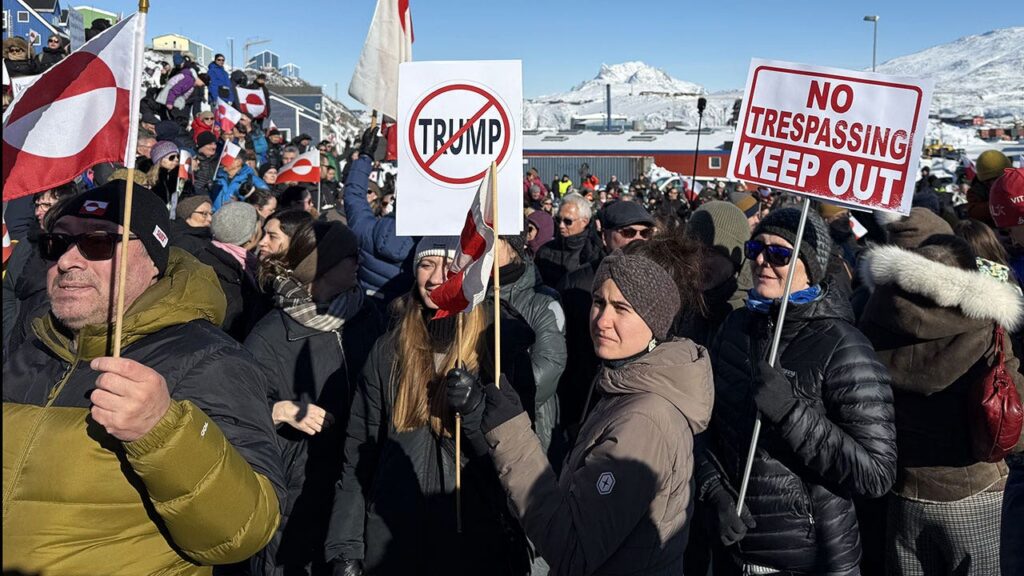In a recent visit to Greenland, French Foreign Minister Jean-Noël Barrot issued a stern warning against the growing ambitions of major world powers in the Arctic. Speaking from the capital of Nuuk, Barrot emphasized that Greenland “is not up for grabs” and criticized the “brutalization” of global politics. This declaration comes amid escalating tensions regarding Greenland’s strategic importance, highlighted by controversies surrounding former President Donald Trump‘s ambitions for the territory.
| Article Subheadings |
|---|
| 1) Emphasizing Greenland’s Autonomy |
| 2) Addressing International Tensions |
| 3) Future Agreements on Critical Minerals |
| 4) France’s Support for Greenland |
| 5) The Larger Geopolitical Landscape |
Emphasizing Greenland’s Autonomy
During his official visit, Jean-Noël Barrot stressed the importance of Greenland’s autonomy and territorial integrity. He asserted that the island is not a bargaining chip in international negotiations, stating emphatically, “Greenland is not for sale.” This statement serves as a timely reminder to global powers, particularly following historical interactions that have deemed the Arctic region a subject of contention among nations. By elevating this stance, Barrot aims to underscore the necessity for sovereignty and respect for local governance, especially in turbulent times.
Addressing International Tensions
Barrot’s remarks included a veiled reference to Donald Trump‘s past actions regarding Greenland, notably his expressed desire to purchase the territory. Furthermore, he pointedly criticized the revival of imperialistic ambitions among world leaders, warning that the shift from cooperation to coercion could unsettle global peace and democracy. His comments come in light of current geopolitical unrest, especially due to conflicts such as Vladimir Putin‘s war in Ukraine, which have raised questions about the motives of powerful nations interfering in smaller territories. The sentiment reflected in Barrot’s address illustrates the deepening anxiety among European nations regarding Arctic security.
Future Agreements on Critical Minerals
In addition to addressing broader geopolitical concerns, Jean-Noël Barrot confirmed plans for further agreements focusing on critical mineral extraction. This initiative follows a recent accord between Denmark and France, grants a mining consortium rights for the extraction of anorthosite, a vital mineral used in aluminum production. These discussions are anticipated to progress in fall, ensuring that local interests in Greenland are prioritized in international contracts. This partnership not only reinforces economic ties between France and Greenland but also highlights the growing significance of natural resources in the Arctic, amid a global push for resource sustainability.
France’s Support for Greenland
French President Emmanuel Macron has also signaled strong support for Greenland amidst the ongoing geopolitical tensions. Having visited the territory in June, he criticized past threats made by the U.S. to acquire Greenland, calling for international respect for its sovereignty. Macron’s commitment reflects a unified stance within European countries against perceived aggression from larger powers and reassures Greenland of its place in the European framework. By doing so, France aims to reassert its influence in the region while affirming the island’s status as an essential part of Europe.
The Larger Geopolitical Landscape
The broader implications of this visit extend beyond Greenland itself, linking to increased competition for resources in the Arctic region. As climate change opens up new possibilities for exploration and extraction, nations like Russia, China, and the United States may intensify their interests. The urgency behind these developments is not lost on European leaders, who see Greenland as a bellwether for Arctic policy moving forward. Barrot’s visit marks an attempt to secure France’s role in this evolving landscape, where the balance of power is in flux due to increasingly aggressive national policies and the ongoing repercussions of global conflicts.
| No. | Key Points |
|---|---|
| 1 | French Foreign Minister Jean-Noël Barrot visited Greenland to reaffirm its sovereignty and territorial integrity. |
| 2 | Barrot emphasized the need for cooperation on global challenges instead of coercion among powerful nations. |
| 3 | Future mining agreements will focus on critical minerals essential for various industries, reinforcing local economic interests. |
| 4 | France aims to establish stronger ties with Greenland as part of a collective European strategy in the Arctic. |
| 5 | The geopolitical landscape of the Arctic is changing, prompting ongoing discussions among world leaders regarding territorial integrity. |
Summary
The visit by Jean-Noël Barrot underscores a significant stance by France regarding Greenland’s sovereignty at a time of shifting global dynamics. As nations eye the Arctic for its resources, France has positioned itself as a staunch ally of Greenland, advocating for cooperation rather than coercion. The future agreements and ongoing dialogues about critical minerals signify a growing relationship built not only on economic interests but also on shared values and respect for international law. The unfolding situation in the Arctic will likely have far-reaching implications for geopolitical strategy and global security.
Frequently Asked Questions
Question: What was the purpose of Barrot’s visit to Greenland?
The visit aimed to reaffirm Greenland’s sovereignty and emphasize that its territory is not up for sale, amidst rising global tensions.
Question: How does France plan to engage with Greenland in the future?
France plans to focus on agreements regarding critical minerals extraction, ensuring that local economic interests are prioritized in future dealings.
Question: What broader implications does Greenland’s strategic position have?
Greenland’s position is crucial as climate change opens the Arctic for exploration, making it a focal point for geopolitical interests of several world powers.


